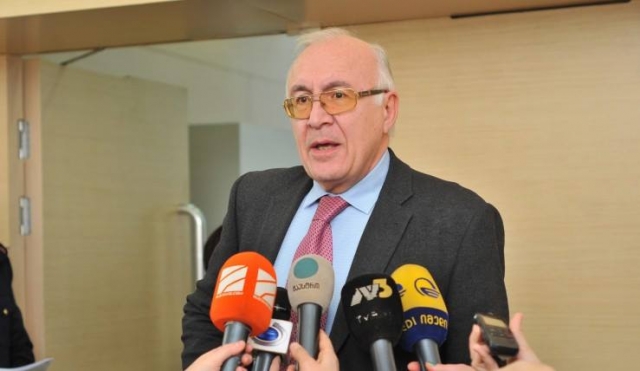Abashidze: Georgia Will Never Put up with “New Reality” in Region
TBILISI – Georgian Prime Minister's Special Representative for Relations with Russia, Zurab Abashidze stated on Monday that Georgia will never put up with Russia’s recognition of Georgia’s two breakaway regions Abkhazia and South Ossetia.
He made the statement in response to Russia’s Foreign Minister, Grigory Karasin, who told Sputnik Belarus that Russia is not going to change its position over recognition of Georgia’s occupied regions.
Abashidze says that Russia calls current situation a “new reality” in the region, which Georgia will never accept.
“Georgia is still insisting on a review of the decision regarding the recognition of Abkhazia and South Ossetia and that it is not and never will be a reality,” said Abashidze.
According to Abashidze, the overwhelmingly vast majority of the world shares Georgia’s position regarding the issue.
Georgian Official also commented over the visa-regime with Russia and underlined that Georgia annulled visas for Russia’s citizens in 2011, though Russia maintained its complicated procedures until this year, when the visa regime has been significantly simplified by the occupant neighbor.
“It is up to Russian side what steps it takes in the future in connection with the visa-liberalization. We cannot force them to make any decision and we do not have any illusions about it,” stressed Abashidze.
Grigory Karasin said on Monday that there have been have significant progress in Russian-Georgian relations since 2012, but Moscow is not going to revise its position towards Abkhazia and South Ossetia.
According to Karasin, Tbilisi continues to call on Moscow to reverse its recognition of Georgia's two breakaway regions as independent states.
“This is unrealistic”, Karasin said in an interview with Sputnik. “It will never be real”, he added.
Moreover, Russian Minister stressed that Georgia had cut diplomatic relations with Russia itself and there is no need of creating illusions on visa liberalization.
He also said that Russia helped South Ossetia to protect its independence and afterwards, recognized the independence of both regions that was followed with “evil and anti-Russian rhetoric by Tbilisi”.
However, Karasin added that from the end of 2012, the situation changed and Georgia’s new government started to think how to normalize relations in the areas where possible.
“Today, we are satisfied with the fact that we have improved the situation in terms of humanitarian contacts, transport and trade…And now there are prospects for continuation of these processes”, Karasin said.
Georgia broke off diplomatic relations with Russia after August war 2008, which left 20% of Georgian territories occupied by Russia.
By Thea Morrison












